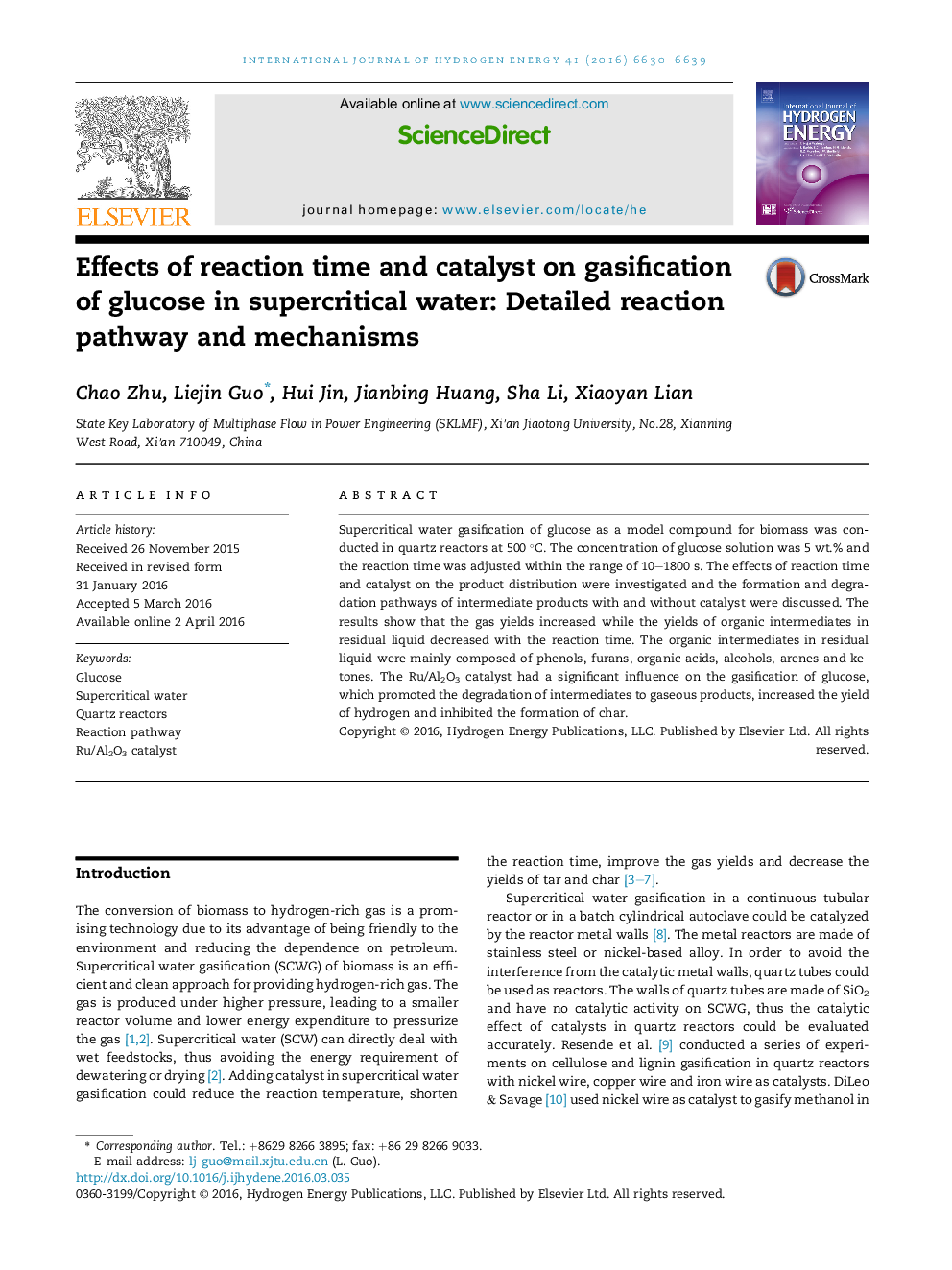| Article ID | Journal | Published Year | Pages | File Type |
|---|---|---|---|---|
| 1270669 | International Journal of Hydrogen Energy | 2016 | 10 Pages |
•The organic compounds in residual liquid were extracted using liquid–liquid microextraction method.•A degradation pathway of glucose in supercritical water was discussed.•Ru/Al2O3 catalyst promoted the degradation of phenols and inhibited the formation of char.
Supercritical water gasification of glucose as a model compound for biomass was conducted in quartz reactors at 500 °C. The concentration of glucose solution was 5 wt.% and the reaction time was adjusted within the range of 10–1800 s. The effects of reaction time and catalyst on the product distribution were investigated and the formation and degradation pathways of intermediate products with and without catalyst were discussed. The results show that the gas yields increased while the yields of organic intermediates in residual liquid decreased with the reaction time. The organic intermediates in residual liquid were mainly composed of phenols, furans, organic acids, alcohols, arenes and ketones. The Ru/Al2O3 catalyst had a significant influence on the gasification of glucose, which promoted the degradation of intermediates to gaseous products, increased the yield of hydrogen and inhibited the formation of char.
